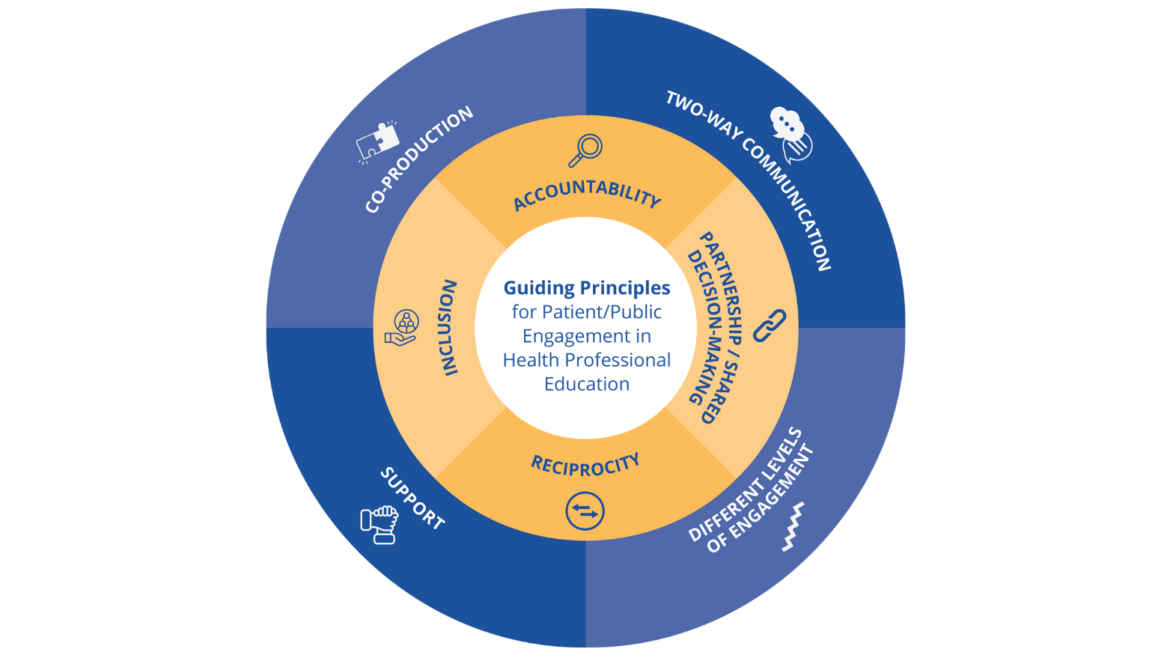
Bringing patients and society back into the social accountability of a medical school
The purpose of the project was to co-create with patients and the public a set of evidence-based guiding principles, models and processes for the authentic, responsive, ongoing and sustainable engagement of patients and the public in the mission, goals, curriculum and delivery of medical education. The goal is to make medical education more responsive to the needs of society.
Project activities included:
· A review of practical guides to engagement (Report 1)
· Environmental scans involving key informants from different institutions (Report 2 and Report 3)
· Patient / public consultations (Report 4)
Key findings are summarised in a synthesis report which includes 8 Guiding Principles for engaging patient and the public in health professional education and 10 Recommendations to help medical and other health professional schools fulfill their mandate for social accountability by involving patients / the public (Report 5)
The project was funded by a 2020 Royal College/Associated Medical Services CanMEDS Research Grant from the Royal College of Physicians and Surgeons of Canada.
Reports
Patient & Public Engagement: A Review of Practical Guides
-Cathy Kline, Research Coordinator at Patient & Community Partnership for Education
An Environmental Scan on Methods for Patient and Public Engagement
-Jordan Williams-Yuen, 4th Year Medical Student at the University of British Columbia
-Alicia Liang, 4th Year Medical Student at the University of British Columbia
Report of Patient and Public Consultations
-Angela Towle, Cathy Kline, Patient & Community Partnership for Education and Kenneth Ong & Lucy Wang, 1st Year Medical Students at the University of British Columbia
Synthesis Report and Recommendations
-Angela Towle, Co-Director of Patient & Community Partnership for Education
Guiding Principles for Patient/Public Engagement
- Accountability: Includes transparency, feedback, and shared outcomes.
- Inclusion: People with diverse perspectives are sought and invited to participate. Engagement processes are easily accessible.
- Reciprocity: Relationships are mutually beneficial and based on trust and mutual respect.
- Partnership/Shared Decision-Making: University and community partners have equal voices and shared responsibility.
- Co-Production: University and community partners work together to co-develop and co-design engagement processes and activities.
- Two-Way Communication: Communication is open and honest, with clear expectations on both sides.
- Support: Community partners receive the support and information they need to participate fully.
- Different Levels of Engagement: There are diverse opportunities for the community to engage in health professional education (from classroom to committee).
Three different formats of the guiding principles are available for download through the buttons below. You can also watch a video of patient / public member’s perspectives on the guiding principles.
Steering Committee
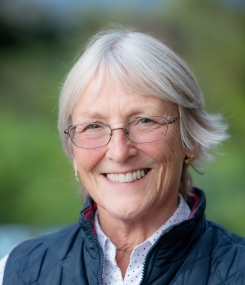 |
Angela Towle is Co-director of Patient & Community Partnership for Education (PCPE) in the Office of UBC Health at the University of British Columbia (UBC), Vancouver, Canada. PCPE has a research and development focus on patient involvement in health care decision-making and in health professional education. It has developed, implemented and evaluated innovative educational programs that involve patients and community members as educators for health professional students. Angela’s commitment to university-community engagement led to her appointment in 2013 as Academic Director of the UBC Learning Exchange with a responsibility to strengthen engagement between the university and Vancouver’s inner city (Downtown Eastside) communities. Angela is also an Associate Professor in the Department of Medicine and Senior Scholar in the Centre for Health Education Scholarship at UBC. |
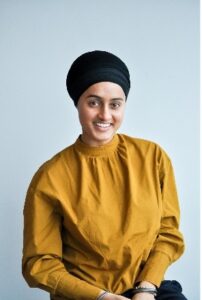 |
Bavenjit Cheema is a first-year Family Medicine Resident at the UBC Surrey South Fraser Program. She is passionate about patient involvement in medical learning spaces, with a previous publication in the journal Medical Education: Patient-Present Teaching in the Clinic; Effect on Agency. She continues to look forward to shaping future medical education environments. |
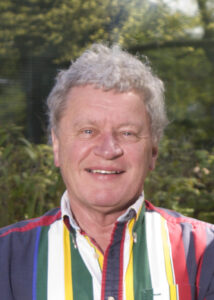 |
William Godolphin is Professor Emeritus in the Department of Pathology & Laboratory Medicine and Co-director of Patient & Community Partnership for Education, Office of UBC Health, previously the Division of Health Care Communication in the College of Health Disciplines at the University of British Columbia, Vancouver, Canada. Dr Godolphin has been a teacher and researcher for many years, with projects and publications ranging across lipoproteins, breast cancer prognostic factors, clinical laboratory toxicology, laboratory automation & robotics and medical education. For over two decades he has, in collaboration with Angela Towle, developed and studied educational interventions that aim to help health professionals engage patients/clients in informed and shared decision making. The most promising of these has been bringing the authentic and autonomous voices of patients and community into health professional education. |
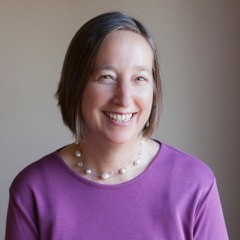 |
Citizen-patient and Adjunct Professor, Faculty of Medicine at the University of British Columbia, Canada Carolyn Canfield works as a citizen-patient across Canada and internationally to expand opportunities for patients, carers and communities to partner with healthcare professionals in research, teaching, improvement and governance. Arising from sudden widowhood after her husband’s care failures in 2008, Carolyn’s full-time volunteering earned her recognition as Canada’s first Patient Safety Champion and appointment as adjunct professor in the Faculty of Medicine at the University of British Columbia. She works with the Innovation Support Unit in the Department of Family Practice, teaches patient safety in the undergraduate medical program and School of Nursing, and is a member of the Admissions sub-Committee in the Dept of Medicine. Since 2014 Carolyn has advanced a patient perspective within the Resilient Health Care Network. Her commitment to research includes contributions as co-researcher, advisor and reviewer for many Canadian and international projects and establishments. Carolyn co-founded “Patients In Education” in British Columbia and the national Patient Advisors Network to develop capacity and leadership in citizen-patients across Canada. |
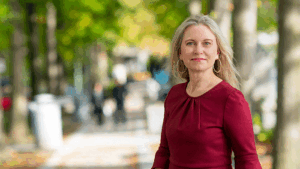 |
Dr. Cary Cuncic (she/her/hers) is a practising general internist at Vancouver General Hospital. She is a Clinical Associate Professor in the Department of Medicine, UBC and is the Regional Associate Dean, Vancouver Fraser. She is excited to be part of this project to engage the communities in the Fraser Health Authority, which has diverse populations and is the fastest growing region in BC. |
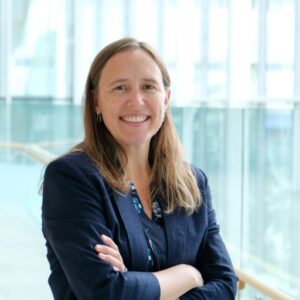 |
Cathy Kline is the Research Coordinator, Patient & Community Partnership for Education, University of British Columbia (UBC), Vancouver, Canada. Cathy joined UBC in 2003. She manages research and development initiatives that promote patient and public involvement in health professional education and has helped to build a network of over 150 patient educators and 80 community organizations at UBC. Her work involves collaborations between the university and community to integrate patient expertise and experience into mainstream educational practice. Her research interests are in the outcomes of patient engagement, particularly the impacts on professional identity, health care communication and decision making. |
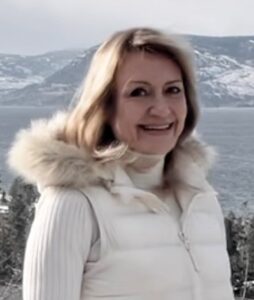 |
Cheryl Holmes (she/her/hers) is Associate Dean Undergraduate Medical Education and Clinical Professor and Head Division of Critical Care, Department of Medicine at the Faculty of Medicine at the University of British Columbia.As Associate Dean I am deeply committed to the MD Undergraduate Program’s Mission to “deliver exemplary distributed medical education that prepares future physicians to collaborate with patients and their circle of support in providing culturally safe, high-quality healthcare for the diverse and changing populations in BC and beyond, including Indigenous Peoples, people living in rural and remote communities, and those who disproportionately experience adverse outcomes in health care”.
A goal of our MD Undergraduate Program is to explore strategies for continuing to engage with patients and the public in the ongoing refinement of the mission, goals, and curriculum. I am really excited about this initiative as learn how to do this authentically and meaningfully. |
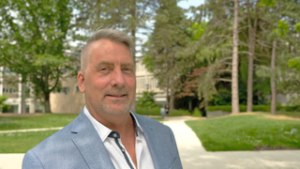 |
As a person living with HIV since 1985, I have had a great opportunity to engage within the health care system. Along the way I have learned that it has some amazing people trying to bring the best care forward however in that journey of care are many roadblocks which create fragmented care and results that could be better. In my journey, I have become an advocate not just within the HIV movement but as a Patient Advocate. I realized that having a chronic illness didn’t differentiate on a broad system level how you were Treated within the health system and the roadblocks still were the same.Over the years I have served on many advisory committees, Boards of Non-Profits and participated within the research world, now mostly at Research Steering Committee level. Currently I am on the UBC Health Council as a Patient/Public voice, other sub committees and as a mentor to 4 health science students. For me it is this drive to better an agency, fulfill mandates and visions or strategic plans, or discover answers to larger questions but more so to improve systems for better care.The missing component was the role that education plays, and I soon found myself engaging in this area, connecting the dots, linking areas together and creating pathways forward to better care or relationships. Without knowledge learned being shared all around the circle, good care systems get broken and it’s immensely valuable to close that circle by putting Patients and Community into the education classroom, to enrich the learning experience. Thereby augmenting the many tools academia provides into the hands of future caregivers giving them a better understanding of their roles. |
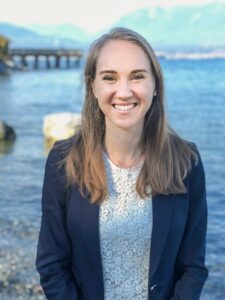 |
Elise Jackson is a third-year resident in Internal Medicine and the current Chief Medical Resident at Vancouver General Hospital. She completed her undergraduate studies at McGill University, and her MD at the University of Toronto, before moving to Vancouver for residency. Her interests lie in health equity and improving care for marginalized populations, as well as increasing the incorporation of social justice and anti-oppression concepts into medical education. |
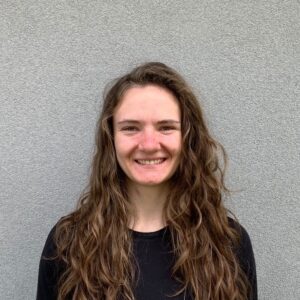 |
Emma Swan is a second-year medical student at UBC’s Northern Medical Program. She completed her Bachelor of Science in Medical Biochemistry at UBC Okanagan prior to her medical school acceptance. As a student, Emma is interested in bringing a diversity of perspectives in to medical education and ensuring the content captures the needs of the population UBC students are learning to serve. She is excited to be a part of the steering committee and help improve medical education for future students. |
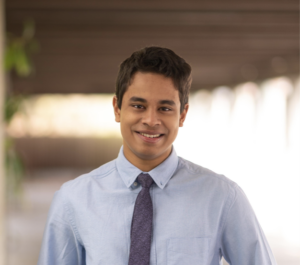 |
Ishmam Bhuiyan is a first-year medical student at the University of British Columbia’s Vancouver Fraser Medical Program. He is passionate about housing, economic and social justice, and hopes to spend his career contributing to the creation of a more fair and equitable healthcare system for all. He enjoys building community, spending time with his family, and going on adventures with friends. Ishmam looks forward to working with other members of the steering committee to make social accountability a core component of the medical education future students receive. |
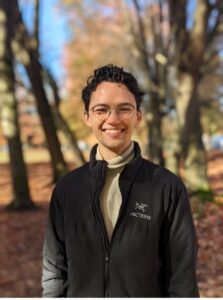 |
Jordan Williams-Yuen is a fourth-year UBC medical student at the Vancouver Fraser site. He grew up on the tip of Vancouver Island in Victoria, BC, but has called Vancouver home for the last 10 years. So far in his training, Jordan’s interests have pulled him towards medical education, qualitative research, and the ways in which social justice can be incorporated into the formal curriculum. Outside of medicine, he enjoys playing music and getting out to enjoy the west coast wilderness. |
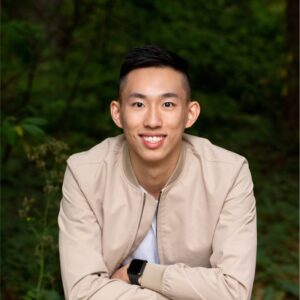 |
Kenneth Ong is a second year medical student at the Vancouver-Fraser Medical Program. Prior to medical school, he completed an undergraduate degree in behavioural neurosciences at UBC and worked with the Provincial Health Service Authority (PHSA) on improving patient data connectivity. He is excited to be involved with the steering committee and to help bring diverse patient perspectives into medical education initiatives. |
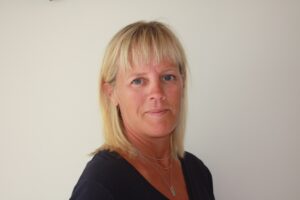 |
Dr. Maria Hubinette is a community-based family physician with a special interest in youth and women’s health, including survivors of gender-based and sexualized violence. She is a Clinical Professor in the Department of Family Practice at UBC and a Scholar at the UBC Centre for Health Education Scholarship. Dr. Hubinette is the Family Medicine Undergraduate Program Director at UBC and Assistant Dean, Equity Diversity Inclusion for the UBC Faculty of Medicine. She is the past Chair of the Undergraduate Education Committee at the College of Family Physicians of Canada.
Dr. Hubinette’s scholarly and professional activity focuses on equity and inclusion, health advocacy, social accountability of the medical profession, and professional identity formation of learners. Dr. Hubinette also enjoys engaging in teaching, mentorship and supervision of scholarly projects with medical students, family medicine residents and clinical education fellows. |
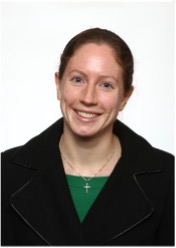 |
Naomi Day is a first-year medical student at UBC’s Okanagan campus. She completed her undergraduate degree as a registered nurse in Northern BC, where she mainly lived and worked prior to starting medical school. Her experiences in healthcare highlighted the need for stakeholder engagement with both system and individual level changes. She is looking forward working together for the ongoing development of socially accountable medical education. |
 |
Nilanga (Aki) Ediriweera Bandara is a first-year medical student at the Vancouver-Fraser Medical Program. He completed his undergraduate degree in Food, Nutrition and Health and a Master’s degree in kinesiology at UBC. He is interested in learning more about integrating patients’ voices into medical education and health equity initiatives. |
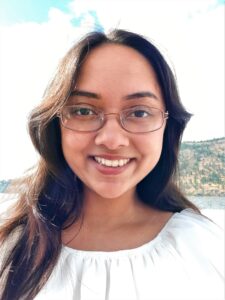 |
Pooja Kadakia is a first year student at UBC’s Southern Medical Program in Kelowna. She completed a three-year Bachelor’s Degree in Biochemistry before pursuing medicine. She is passionate about developing ways to use patient stories to inform medical practice and help medical education truly reflect the needs and values of the people they serve. |
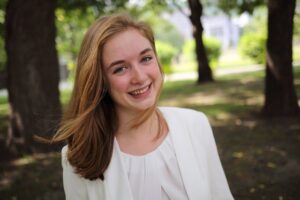 |
Simona is a second-year medical student at the Island Medical Program. Raised in a small rural community herself, she has a strong interest in improving access and quality of care to rural, remote and Indigenous communities in Canada. Prior to attending medical school, Simona completed a MSc at UVIC with a focus in Indigenous health and community-based research. She is excited by the aim of this project to authentically and sustainably engage Canadian communities to direct the goals and values medical education. |
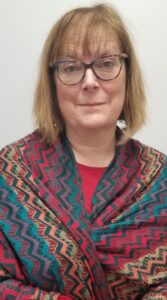 |
Sue Macdonald coordinates Consumer Involvement and Initiatives for Vancouver Coastal Health Authority, in Vancouver. Sue’s work focusses on amplifying the voice of peers, persons with lived/living experience of mental health and substance use issues. A long time advocate of patient and family engagement in health care and health professional education, she is excited to share her experiences in this area as a part of the project team. |
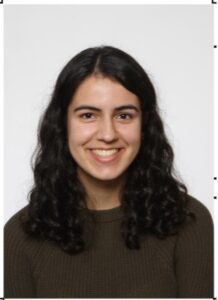 |
Taylor Sidhu is a second-year medical student in the UBC Island Medical Program in Victoria. Prior to medical school, she studied Biology and Psychology at the University of Victoria. Taylor is interested in amplifying patient voices from underrepresented populations and facilitating patient involvement in medical education. She is looking forward to investigating meaningful public engagement strategies as part of the steering committee. |
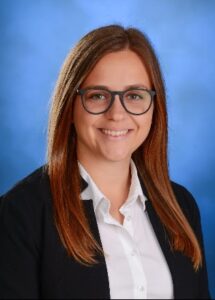 |
Veronica Chudzinski is a 2nd year family medicine resident training in Northern BC. She is interested in rural, and remote medicine, with particular attention to Indigenous medicine. Veronica completed her medical education at the University of Ottawa where she quickly learned the importance of patient input in her clinical training. She is excited to join the steering committee to integrate the public in furthering medical education. |
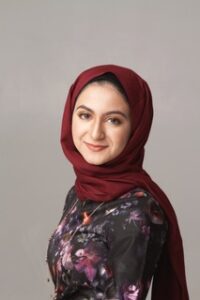 |
Zamina Mithani (she/her) is currently a second year medical student at the Vancouver Fraser Medical Program at UBC and recent graduate of a masters of bioethics from Harvard Medical School (HMS). She completed her undergraduate degree at UBC where she received a Wesbrook Scholarship (2019), served as the president of Thaqalayn Muslim Association, has given multiple TEDx talks about racism, and was recently on the UBC-wide anti-racism task force headed by President Ono. She has also written on the importance of anti-racism, narrative, and shared decision-making in leading bioethics journals and has done work in trauma-informed care in medical education at HMS. She is passionate about achieving justice within healthcare, narrative medicine, as well as creating spaces where relationships of power and identity can be explored with humility, nuance, and compassion. She loves poetry, stand-up comedy, her pet bird, and spending time with family and friends. |